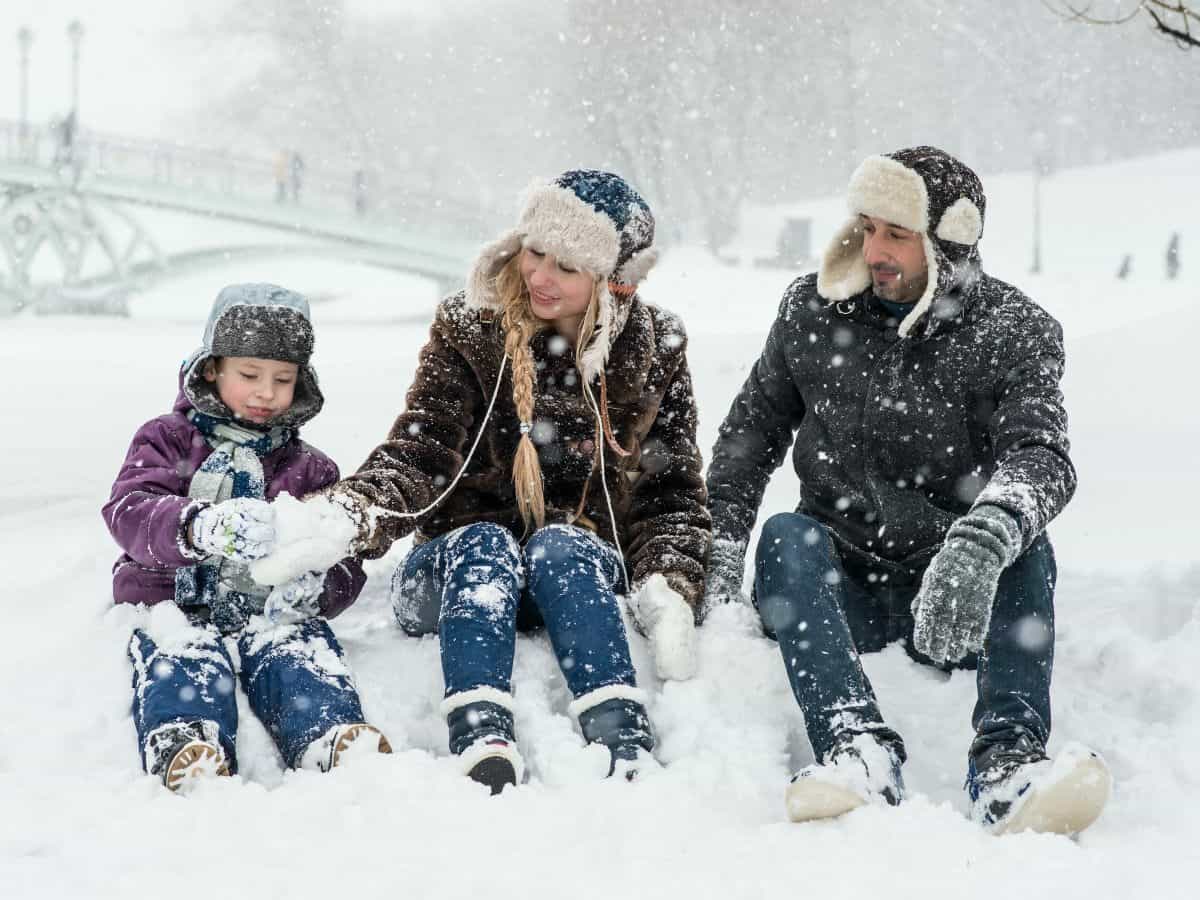The winter season can be fun and exciting, with activities like skiing, ice skating, sledding, snowmobiling, and ice fishing. Add in the winter holidays for Christmas and New Year’s Eve, and you have some fun times even with the cold and snow. But a winter storm warning can put a damper on winter fun.
Winter storms are a sobering part of the winter season. Dangerously cold temperatures, power outages, and communication systems failures put many people at risk. Travel in winter is impacted by winter storm warnings too. Snow and ice on airplane wings and runways cause flight cancellations, and dangerous roadways cause auto accidents.
On the home front, winter weather brings slips, trips, and falls on icy and snowy surfaces. It also causes back strain from shoveling heavy snow, and frostbite and hypothermia from exposure. But these aren’t the only risks in winter. Having the right home insurance coverage is vital to protect against winter damage.
The Polar Vortex and Arctic air created historic winter weather in the United States in 2021.Snow, ice, freezing temperatures, and flooding from winter storms caused a whopping $15.1 billion in losses in 2021 according to the Insurance Information Institute.
This winter storm warning guide can help you understand winter conditions to prepare for and protect against the danger and inconvenience of winter weather.
What is a Winter Storm Warning?
The Weather Forecast Offices of the National Weather Service will issue public weather statements when there’s hazardous weather coming. This normally happens within 36 hours. The statements are issued by the local offices of the National Weather Service are based on local criteria. A winter storm warning is one of the statements issued.
The National Weather Service issues warnings, watches, and advisories, with warnings being the most serious.
- A winter storm warning means there is a high probability of snow, sleet, or ice coming, and people should take action to stay safe and avoid travel.
- Winter storm watches means there is a medium possibility of heavy snow, sleet, or freezing rain and people should be prepared.
- A winter weather advisory means wintry weather is expected for some snow, wind, and possible slick conditions.
A winter storm warning means that there will be at least six inches of heavy snow in 12 hours, or at least eight inches in 24 hours. Sleet accumulation of at least half an inch may also prompt a winter storm warning. If the forecast is for ice accumulation of at least 1/4 inch, an ice storm warning will be issued.
Winter storm warnings should be taken seriously, and travel during winter storms is to be avoided if possible. Storms can take out power lines and communications systems. They can cause gas, electric, and phone outages. Other conditions include dangerous or impassable roads, and stores and other locations like banks and libraries closing unexpectedly.
You can quickly become isolated or cut off if a really bad winter storm hits. Some recommended preparations include stocking your pantry with non-perishable food and bottled water. Also, getting prescriptions filled if necessary, and getting emergency supplies like batteries, matches, and first aid materials. Gathering snow removal items like ice melt and shovels is a good idea.
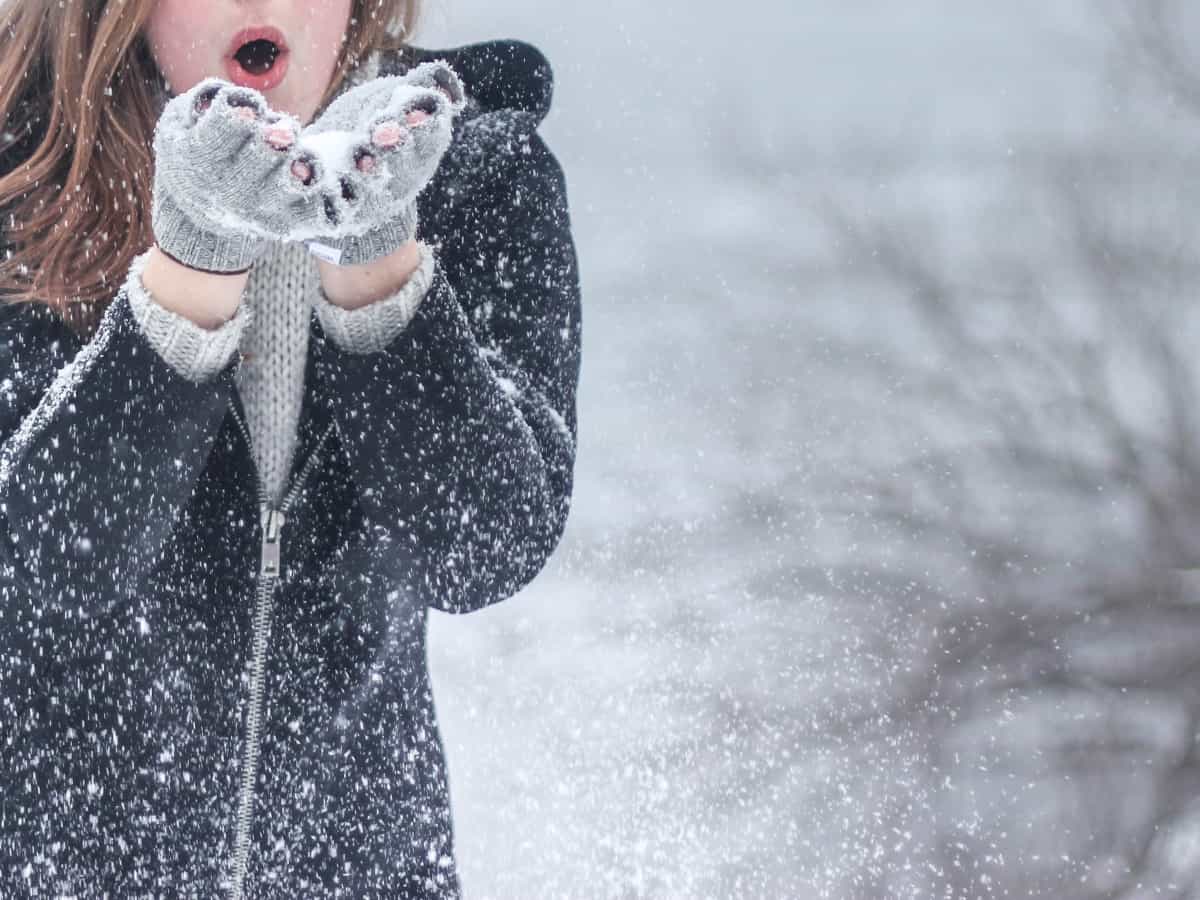
Our List of What to Stock Your Home With
Stocking your vehicle with emergency supplies is also recommended in advance of winter storms.
Stock things like:
- Blankets
- Extra hats
- Gloves
- Scarves
- Flashlights with fresh batteries
- Matches in waterproof containers
- Packaged ready-to-eat food
- Shovel
- Flares
- Hand warmers
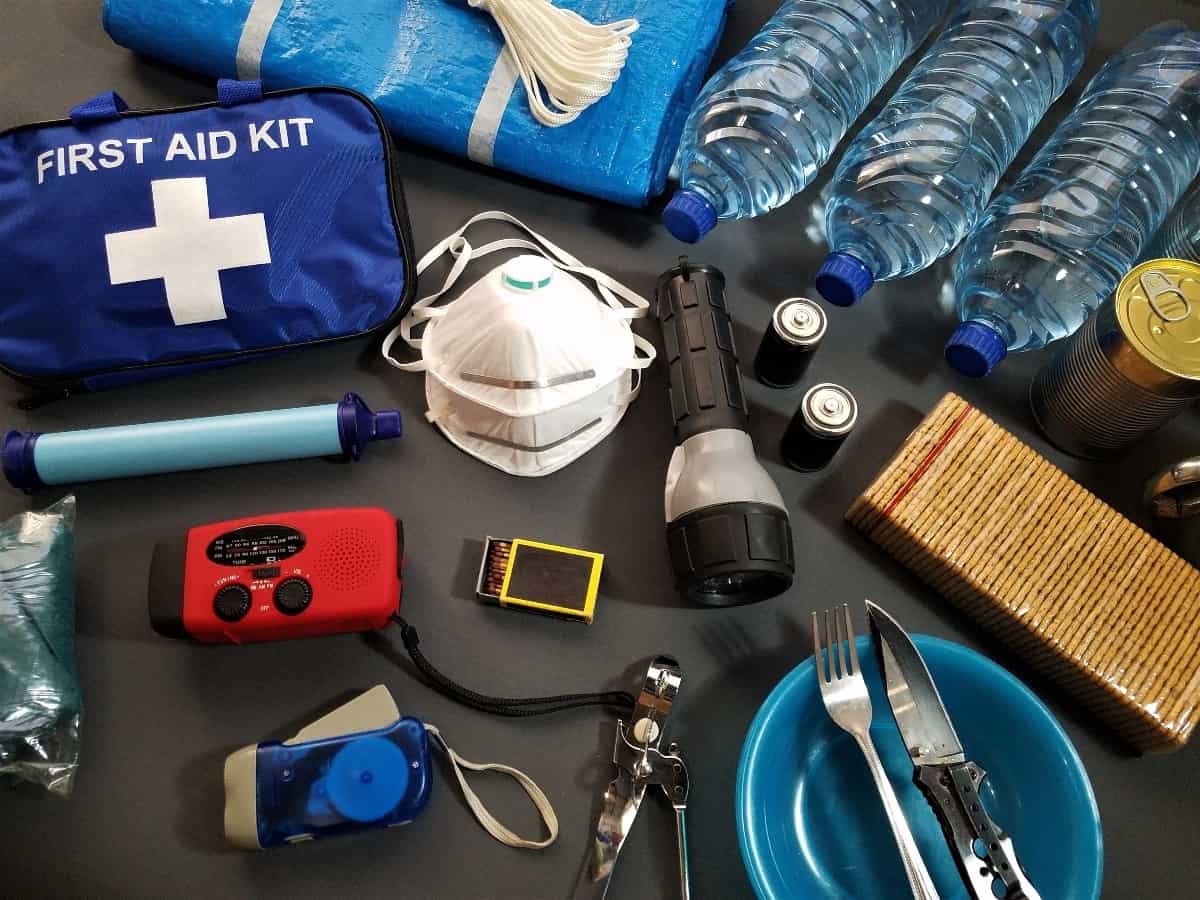
The Best Way to Stock Your Household
The Centers for Disease Control (CDC) recommends being prepared before a winter storm hits, especially if you are in an area prone to dangerous winter weather.
Install or check battery-operated smoke and carbon monoxide detectors, especially if you use a fireplace, wood-burning stove, kerosene heater, or other heating alternative. Have a fresh fire extinguisher on hand. Make sure any fuel-burning equipment is vented properly to the outside. Easy-to-read thermometers inside and outside help you gauge safe temperatures.
To prepare for the possibility of being snowed in for days, stock your home kitchen or pantry with shelf-stable foods (enough for at least three days) like the following:
- Bottled water (one gallon per person per day, for at least three days)
- Canned goods like soups and stews
- Snack foods like chips, crackers and cookies
- Cereal and granola
- Jams, jellies, pickles
- Canned chicken, tuna, salmon
- Peanut butter and other shelf-stable nut butters for another source of protein
- Dried pasta and jarred sauce
- Dried fruit, nuts, jerky
- Energy bars
- Shelf-stable juice
- Coffee, tea and hot cocoa mix
- Extra paper products like toilet paper and paper towels
- Fresh bread
Extra Tips
It’s also good to eggs, fresh fruit and vegetables, and ingredients for home baked goods on hand if you have time to get groceries before the storm hits.
Be sure not to forget special needs items such as prescription medication, medical supplies, pet food, baby food, formula, and diapers. Get extra specialty items that aren’t easy to substitute or do without for more than a day.
If you have an outdoor grill, it’s helpful to have grilling supplies on hand in case your electricity and/or gas goes out so you can still cook food. Stock charcoal, lighter fluid, matches, or a full propane tank for gas grills. Portable grills or camping stoves will be useful as well in power outages. Other preparation for power outages includes freezing water in several containers to keep in your fridge and freezer to keep food fresh. Dry ice is another option to keep perishables fresh during outages. The Food and Drug Administration recommends 50 pounds of dry ice for an 18-cubic-foot freezer frozen for two days.
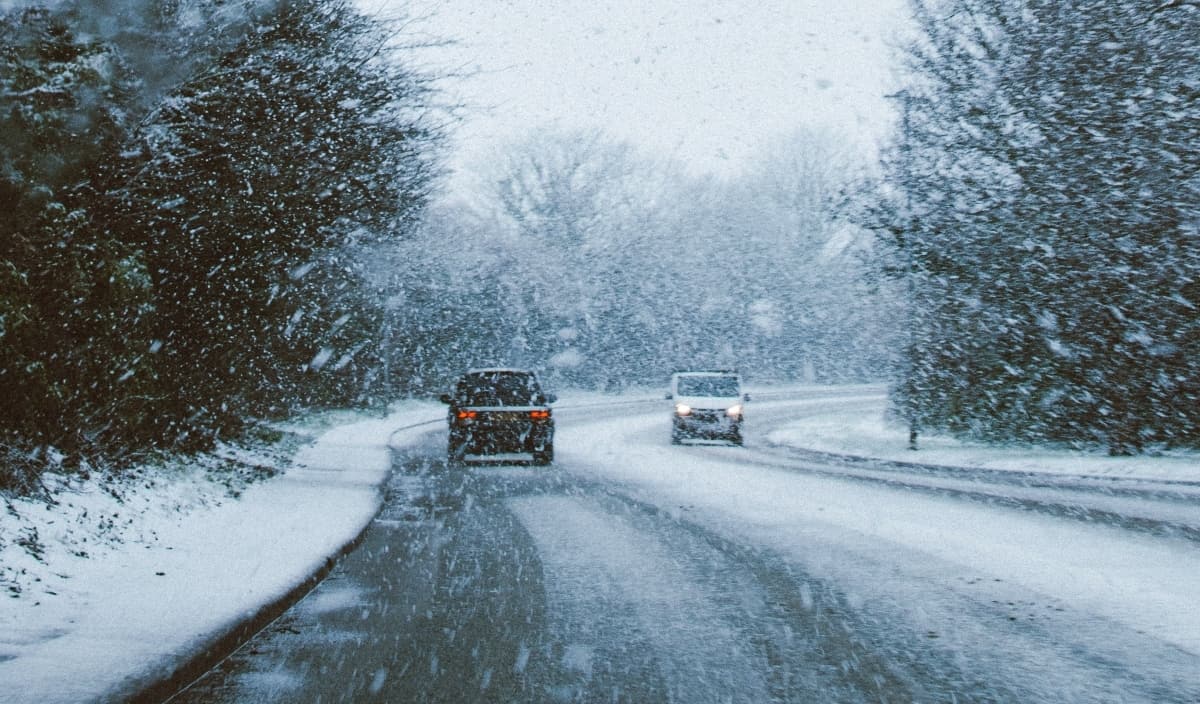
What to Do If You’re Vacationing in a City Under a Warning
It’s best to stay indoors when your area is under a winter storm warning. But if you must travel, there are some things you should do to stay safe until you arrive or help arrives if you are stuck.
What to Know Before You Go
Prepare before you go out driving by:
- filling your gas tank and washer fluid
- stocking your vehicle with warm clothes and blankets
- packing food and water
- including a shovel, ice scraper, and ice melt
- pack an emergency supplies kit
- checking the forecast and let someone know your route and when you’re leaving
- charging your cell phone
- clearing your vehicle of snow and ice (flying snow while driving can cause accidents)
If you skid while driving, don’t panic and don’t pump or stomp the brakes – ease your foot off the gas and turn the wheel carefully in the direction you want the front of the vehicle to go.
Tips While Driving
While you’re on the road, you’ll want to keep these things in mind:
- If you can’t see clearly because of storm conditions, don’t keep driving.
- Pull over until conditions improve for visibility.
- Engage your parking brake for other to see your vehicle is stopped.
- Remain inside your vehicle for safety to avoid getting hit by another car or getting lost in low visibility conditions.
- Keep the window cracked slightly for fresh air and to avoid carbon monoxide poisoning.
- Run the motor for heat just 10 minutes each hour to conserve gas.
- If you are pulled over because you’re having car trouble, tie a red cloth to the antennae to let passersby know you need assistance.
- Drive slowly, especially in icy conditions.
How to Prepare in a Hotel
If you are staying in a hotel and a winter storm warning is in effect, put your travel and vacation plans on hold and stay inside. Ask the hotel management about hotel power and communication systems, evacuation plans, emergency services, and local emergency shelters. If the power is out and it is getting cold in your room, ask about extra blankets or portable heating options.
Before the storm hits, head out to a local grocery to get packaged food, bottled water, and other necessities. The goal is to purchase enough to last you a couple of days. Listen to local weather or news stations to stay informed of the storm’s progress. If you have scheduled paid activities, call and find out about weather cancellations and refunds.
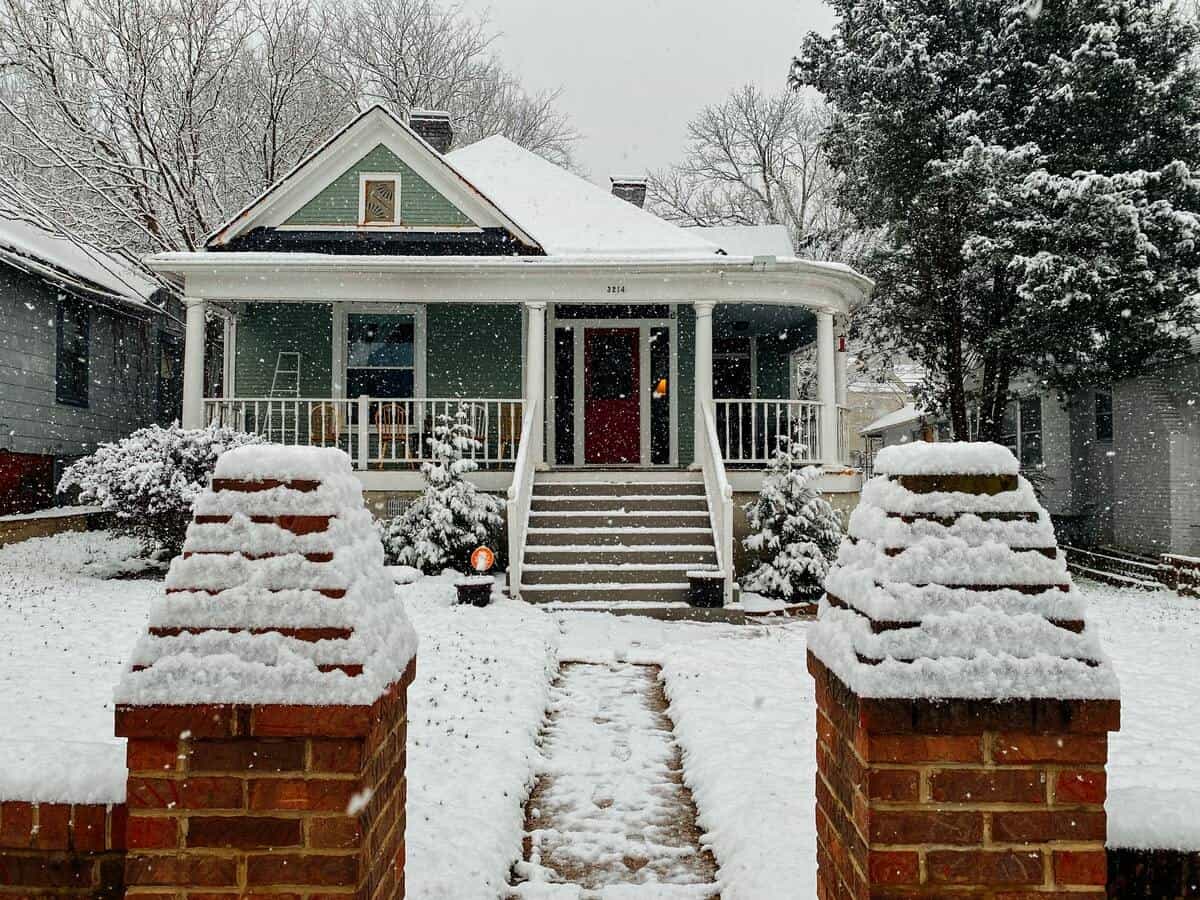
Take Winter Weather Warnings Seriously
Winter storms bring snow, ice, sleet, freezing rain, and sometimes even thunder. Snow and ice can paralyze the areas they sweep through, causing dangerous conditions, expensive damage, and considerable inconvenience.
ONIT Home is here for all your weather related needs. From pipe sensors for winter storms or providing you with a top home or auto insurance policy, we’re ONIT! To get started, visit us online or give us a call right now at 1-833-433-0331 to speak with a live representative.



